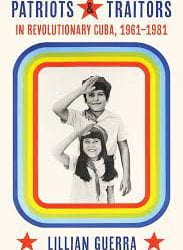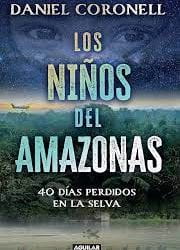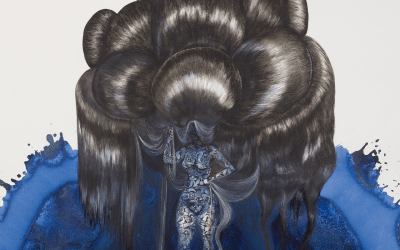A Review of Guerras recicladas: Una historia periodística del paramilitarismo en Colombia
Recycled Wars
by Alberto Salcedo Ramos

Guerras recicladas: Una historia periodística del paramilitarismo en Colombia By María Teresa Ronderos Bogotá: Aguilar, 2014. 402 pages
Guerras Recicladas is not just “a journalistic history of paramilitarism in Colombia,” as the subtitle describes it. It is also a very insightful book, and a key to understanding our own country.
Many of our main issues appear across its pages: armed conflict, the mentality of our leaders, the relationships between central power and regional leaders in the periphery, the way in which politics has been historically practiced, the agrarian problem, exclusion, corruption in management and in the military, drug trafficking from its origins to the present day, arms smuggling and a void in legitimacy that contributes to the multiplication of para-states within the national entity.
In addition, the author draws detailed and complete portraits of the promoters of paramilitarism in Colombia and provides extensive research on their criminal activities, information regarding their corrupt allies in the public sphere and the military forces, and analysis of the devastation they caused.
Maria Teresa Ronderos is a superb reporter who has aimed her great research skills at clarifying a few pernicious misunderstandings we have all fallen for, such as the allegation that the Castaño brothers—Fidel, Carlos and Vicente—become criminals as a consequence of their father’s murder, committed by the Revolutionary Armed Forces of Colombia (FARC).
Ronderos, who was the 2011-12 Santo Domingo Visiting Scholar at Harvard’s David Rockefeller Center for Latin American Studies, provides evidence that Fidel Castaño had begun his career in drug trafficking before the death of his father and had already amassed many pieces of land in some regions of Colombia—such as Córdoba and Urabá– through blackmail or intimidation.
Another example of the author setting the facts straight: David Tomkins, one of the mercenaries who came to Colombia in the late eighties, quoted an article on the FARC he claimed to have read in Cromos magazine. Ronderos went through all the issues of the year in question and found no such article. By calling this crook’s lie, she unmasked him, she undermined the deceitful legitimization of his cause.
One of the merits of Guerras Recicladas is allowing us precisely to see that no lie is too small. She achieves this in a way both simple and insightful that is often forgotten in day-to-day journalism: by confronting all the information available or, as Ronderos calls it, by “piecing the versions together.”
Ronderos follows leads to their final conclusion; she reads heaps of books—many of them published in different countries; she compares documents and talks to dozens of people. Thus, she is prepared when she makes claims such as that the first Israelis to train assassins in the Magdalena Medio region had support from the United States.
Still operating under the Cold War principles, the paramilitaries who brought those mercenaries managed to sell to the United States the idea that they were promoting a political crusade against communism. It was their way of legitimizing the killing and drug trafficking machine that by then they had already created.
“Those courses,” says the author, “were aimed at students who were going to perpetrate massacres but also at those who were going to put bombs in buildings. Killing Bernardo Jaramillo, the UP presidential candidate, because he defended a different ideology, and killing Luis Carlos Galan, the liberal candidate, because he supported the extradition of drug traffickers to the United States was, for these multidisciplinary students, one and the same.”
Guerras Recicladas doesn’t settle for the easy stigmatization of murderers along the biased, simplistic division between good and evil: it is a book that tries to understand and to explain. It mentions, for example, how paramilitary chief Daniel Rendón learned to read and write in prison, and in that way it shows us that often criminals started out as victims.
To retrace the steps of misinformation in search for a truth willingly distorted by many is a just and courageous act. That is why this book is so essential.
Alberto Salcedo Ramos is a Colombian writer and journalist. He is a columnist for El Mundo in Spain and teaches workshops at the Foundation for a New Iberoamerican Journalism (FNPI) in Cartagena. He is the author of several non-fiction books, including La eterna parranda, Botellas de náufrago and El oro y la oscuridad.
Related Articles
A Review of Patriots and Traitors in Revolutionary Cuba, 1961-1981
I remember when I first heard Lillian Guerra speak: over fifteen years ago, at Brown University, about her third book, Visions of Power in Cuba: Revolution, Redemption and Resistance (1959-1971).
A Review of Los Niños del Amazonas: 40 Días Perdidos en la Selva
Los niños del Amazonas. 40 días perdidos en la selva is the first true book by Colombian journalist Daniel Coronell, whose long and impressive career speaks for itself: news director of manifold networks; recipient of prestigious recognitions such as Emmys, Peabodys and Simón Bolívar prizes; and arguably the most widely read columnist in Colombia, where he is as much admired as he is feared.
A Review of Channeling Knowledges: Water and Afro-Diasporic Spirits in Latinx and Caribbean Worlds
Water is a powerful tenet of Afro-diasporic religions that troubles academic disciplines and racial categories that define state, military and geographic borders.




